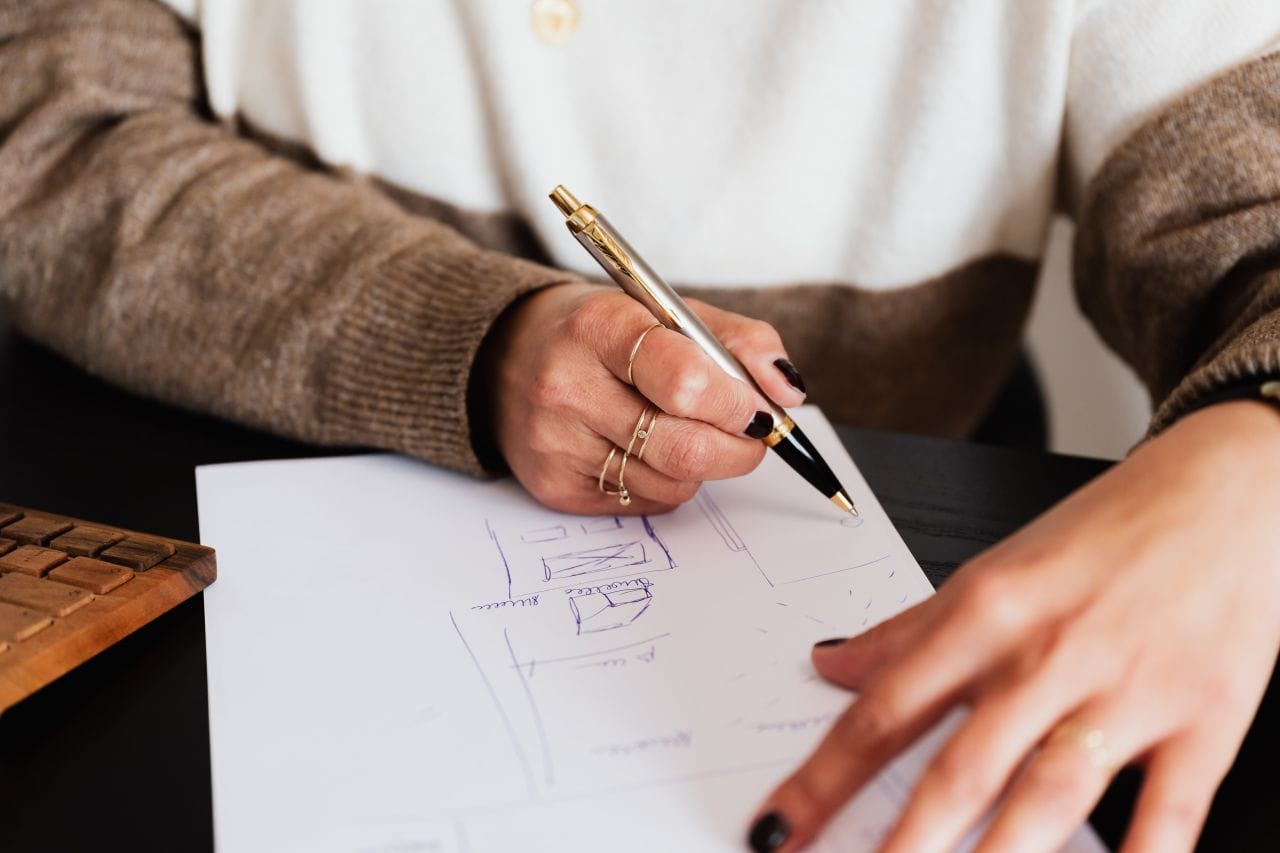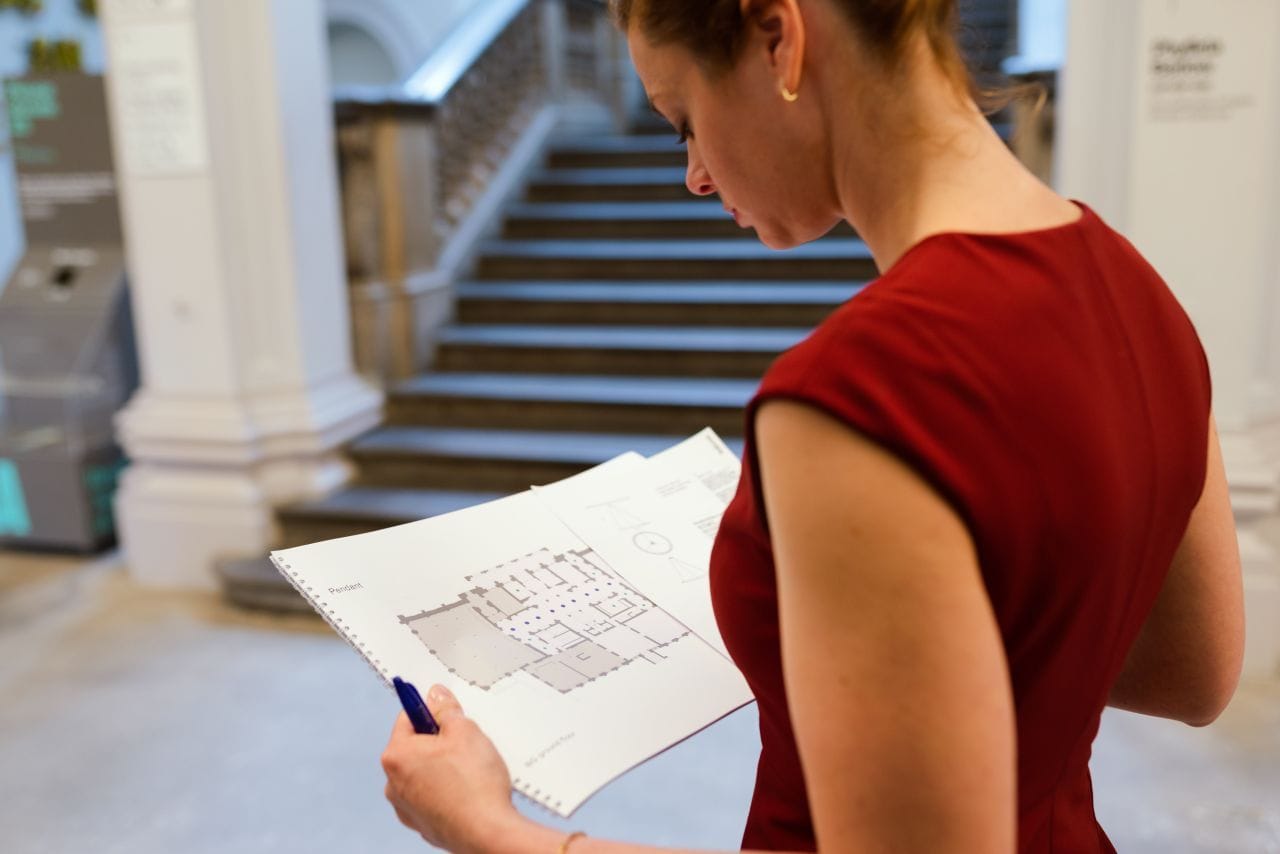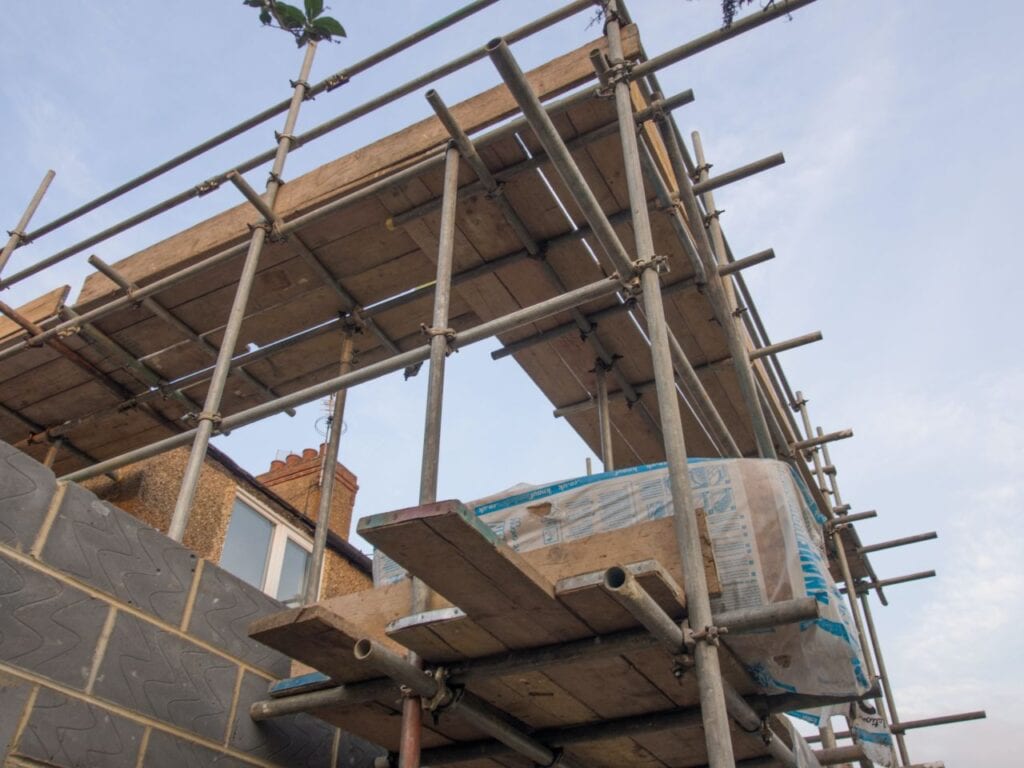You've planned everything out and are ready to construct your ideal house. You have a clear picture of the features you'd want to have in your house, but have you given any attention to the things you definitely do not want? Have you given this issue careful consideration? You have put a lot of thinking into what would help you, but have you considered the alternatives?
Some errant, uncomfortable, and catastrophic blunders may result from poor planning and inadequate funding. To properly design a new house, it's important to examine it from all sides. You need to think about both your present and future ways of living.
Planning a family is an important consideration. Do you plan to have more children? Can you expect your kids to stay at home forever? Do you routinely host parties and guests? Don't rush anything; instead, look into it thoroughly both online and offline. Make an effort to talk to those already established in the field.
Home design decisions that aren't up to par might lead to health problems as well as discomfort. Experts in the fields of architecture, engineering, and construction can advise you on the best course of action. Where you can save money and where you shouldn't, they'll point out the specifics.
The Difference Between A Custom Build And A New Build
Let's define "building new" before we go into common blunders individuals make while constructing a house.
You may either choose a house builder that is already constructing new homes with a layout that suits your needs, or you can employ an architect to draw out a plan and then hunt for a builder.
The second is sometimes referred to as a "production builder." For the most part, production builders only purchase lots and land that are appropriate for building on. In most cases, they will have a selection of house designs available that may be modified to some extent so that the final product is perfect for the customer.
Many people who are in the market for a new home have considered custom building, but in the end either purchase a home that has already been constructed or work directly with the builder to make changes to the house while it is being constructed.
Most homebuyers choose to engage with production builders because they have an edge in locating prime building lots. Evaluating lots is a time-consuming and complex process, and most individual homeowners lack the experience, time, and finances to compete with builders. There is a significant investment of time and money by builders in identifying and purchasing prime building sites, with many of these sites being purchased in the pre-public release phase.
There are a number of cases in which dealing with a production builder is preferable than going fully bespoke because of the ease and lower cost. When working on a project that is completely unique, it is up to you to find and hire everyone from the architects to the builder to the other workers. Production builders have these connections set up ahead of time and may draw on years of expertise to guide them.
Last but not least, prospective homeowners who want to finance their house building project may encounter financing obstacles that mass-production builders do not.
Mistakes New Home Builders Should Never Make
Foresight In Planning
Prioritise space planning for the now and the future before beginning real home building. Even if a mansion is your ideal home, you may only have a little budget to work with. Before hiring a builder and beginning the design process, you should evaluate your financial stability and the flexibility of your budget.
It's important to remember that major purchases, even if absolutely essential, may be out of the question so long as the building is ongoing. It all comes down to making a detailed strategy for your finances, sticking to it no matter what comes up, and considering realistic contingencies in your budget. Every hiccup in the building process may drive up the final price and extend the completion date.
Self-Management Of The Project

An appealing cost-cutting plan, but ultimately a poor one. Experienced home builders possess several valuable abilities, including:
- Looking for possible issues in construction plans and designs
- Obtained all required construction permits
- Knowledgeable selection of materials and accomplished labour
- The process of placing orders and arranging for delivery
- Calculating approximate expenses for labour, supplies, delays, etc.
- Having some tasks done by outside contractors
- Managing issues that didn't come up in the planning stage
It is in your best interest to choose a reputable house builder after doing thorough research on the bids, checking references, and visiting completed projects.
Selecting A Builder Based Only On Price
It's never a good idea to try building a house. If you're bidding out the job, you could be tempted to go with the contractor whose quote comes in the lowest.
However, you will need to investigate how each contractor arrived at their bids and costs in order to comprehend what is and is not included in each proposal you get.
Even with a detailed contract or bid, there is still space for builders to take advantage of you financially in many ways as the project develops. That's why it's best to choose the contractor you are most comfortable with and confident in.
Ultimately, you'll be entrusting the builder with your family's house for years to come, so it's important to get along with them well. It's typically worth it to spend a little extra to have the confidence that comes from knowing you're dealing with the finest.
Asking for references is a great way to verify a builder's credibility. You might also visit existing communities they've created and talk to any helpful locals who might be ready to give their insights.
Being Hasty While Selecting The Location
One of the biggest mistakes people make when building a new house is choosing an undesirable site. A cheaper spot may seem appealing, but you should always remember where you parked. Amenities are a must-have in a home. Properties in desirable areas are always in greater demand. Get the nicest lot you can afford and manage for your unique house. Your property value has increased because of the excellent location of your land.
In terms of really enjoying your new home, the location is crucial. It's important to think about the surrounding area, the proximity of the lot to necessities like grocery stores, banks, and schools, and the condition of the property itself. Consider the price of constructing a driveway and running utility connections for water, gas, and sewage if necessary for your chosen lot. It might be cheaper in the long run to invest more in a larger number of cheaper plots of land.
Not Understanding How To Properly Read A Builder's Quotation.
Be sure to do your research before going with the cheapest option. It's not uncommon for the total cost of a home's construction to exceed the original estimate. People don't always think about all the costs involved, and they don't always realise that not all builders charge the same. Square foot pricing provides an average cost per square foot and is one of the three primary methodologies most contractors use to determine their bids. Once in a blue moon, the actual cost of the materials is mentioned. However, assembly pricing reveals the individual costs of each component and requires careful investigation. Unit pricing is the most trustworthy technique since it accurately accounts for the total price of all materials.
Selecting The Incorrect New Home Builder
The failure to thoroughly vet prospective builders and the company's dependability is another blunder. Ask to examine examples of their prior work to get a feel for the style they employ and whether or not it would be a good fit for your home, and do your homework before hiring anybody to build it. You might also get first-hand accounts from those who already live in previous developments by speaking with them. iBuildNew only accepts builders that can demonstrate a history of success in the industry and a solid financial foundation as members. Using our comparison tool, you can quickly and easily see how different builders stack up against one another.
Making Large Purchases When Constructing A House
Don't even think of purchasing a vehicle during house-building. It could be cheap, but you can never know for sure when an unforeseen bill will pop up, and if you spend your emergency fund on anything else, you'll be in a world of hurt.
Making Modifications During The Building Phase
It's not a good idea to make design adjustments after building has started. They may incur unnecessary costs and cause severe delays. If you wish to make any more adjustments once the building phase is complete, structural design services may assist.
Too Many Rooms That Aren't Being Used
If you know that a playroom or home gym would be unused after a few months, you'll thank yourself for not including it in the blueprint. It's important to make sure that a space you dedicate to recreation may be quickly converted to serve another use.
Room Placement Is Wrong.
This is serious business, so keep the following in mind when you draw out your floor plan:
- The bedroom should be close to the laundry area.
- The bedroom and the garage both need to be located as far from the house's entrance as possible to minimise street noise.
- The ideal location for the kitchen is close to the dining area and the living room, with easy access to the rear door or garage.
- The garage should ideally be located near to the kitchen so that the muck and dirt generated there may be contained there.
Trying To Find Every Way To Save Money.
Don't be tempted to save costs by installing windows that will have to be replaced again in five years just because they were less expensive. Try to find a dependable supplier, contractor, and workforce. After all, you want to spend a lot of time in this house you're constructing.
Overlooking The HVAC System
Perhaps the most anticipated aspects of your new house construction are the layout you've designed yourself, or perhaps it's the luxurious extras like granite countertops and a three-car garage.
To discount the importance of the HVAC system to the safety and efficiency of your house would be a mistake. Moisture problems, if left unchecked, may lead to mould growth and other health problems for your family if you don't have a reliable HVAC system.
Make sure the ducting is sealed properly and installed correctly for maximum efficiency. Your builder should also be able to answer any questions you may have about the efficiency and functionality of your home's heating, ventilation, and air conditioning system.
Not Preparing For Contingencies
During a new construction or renovation, unexpected costs will almost always arise, no matter how meticulously you prepare. Because of this, you should always leave some room in your budget or ask the builder to include a buffer in their estimate. A good rule of thumb is to set aside at least 10% of your total building budget as a contingency reserve in case anything goes wrong. Twenty percent is preferable.
You do know that even the best-laid plans can fail, right? Although everyone here shares your enthusiasm, it would be prudent to account for a few hiccups in a building project of this complexity.
You need to know, for instance, how your mortgage payments would change if construction doesn't wrap up by the promised date.
You should also ask your builder whether they have factored in any contingencies in their cost projections, as well as who would be accountable for any unforeseen costs.
To account for unforeseen costs, such as a rise or fall in the cost of materials or repairs necessitated by weather, some contractors add a "buffer" in their estimates.
The Most Important Aspects While Constructing A House
Although it might be time-consuming, it is important to investigate as many potential builders as possible before making a final decision.
Considerations Other Than The Standard Household May Be Beneficial
It's important to learn what kinds of amenities are included and what kinds need additional payment. The cost of your brand-new house might unexpectedly rise if you aren't prepared for these add-ons.
Read The Small Print Always

It goes without saying that you should read the fine print of every contract you sign, but you should also make an effort to be completely forthright in your dealings. If you have a thorough understanding of the paperwork, it will be much simpler to establish expectations and exert control over any given circumstance.
Know The Right Price
This is a vital step in learning about your potential builder. You should prepare a firm budget but be ready to go above and beyond the first estimate if the need arises. Because of the potential rise in price brought on by your particular blueprint and optional enhancements, you should leave some room in your spending plan for development.
Check Before You Commit
When entering into a contract, it is crucial to double-check the details, including the price and any additional fees. Do not be afraid to ask your builder questions and demand detailed estimates before finalising the layout and design of your project. Be cautious to confirm and establish rates with the builder and agency from the start to prevent any unpleasant surprises after signing the contract.
Always Remember Interest
Most people who are constructing their first house don't consider the fact that variable interest rates might affect the monthly payment amount during the construction process. If you ask your agent for projections of future interest rates, you may be ready for any prospective hikes.
Expect Mishaps
Everyone hopes that their future house will be just that—a dream home. Still, mistakes are inevitable, particularly in the building phase. Accidents may be avoided entirely by paying frequent visits to the site before it is too late to correct any errors you may have made.
Prepare A Backup Plan.
You can better manage your money and make sure you don't fall behind on any bills if you plan ahead. Depending on the proceeds from the sale of your present house may be a stressful way to fund a construction project, especially if the sale of your home does not go as smoothly as planned. All possibilities should be considered, and plans for dealing with them should be made.
Check Twice For Discounts
If you don't keep tabs on your agent, you'll never find out what type of deals are being offered. If you don't check, you could not know about discounts offered by prefered lenders that might lower your overall interest rate. Finding out whether your builder offers a credit incentive is a great method to save money on their services.
Be Patient
Consider the long-term financial and emotional costs before making any hasty decisions or pushing the construction forwards too soon. You must not rush into making any decisions. Instead of trying to speed through the construction process, make sure you comprehend every step.
When you design and construct your own home, you have the opportunity to create a space that will serve your family well for many years to come. In the long run, it will cost more to use low-quality, cheap materials than it would have to in the near term. With the help of his connections, your builder should be able to find affordable options for high-quality materials. You might get a lot of assistance constructing your ideal house if you hire an expert.
FAQs About Home Builder
Mistakes happen. But when it happens to the new home you built, it can cost you. It can lead to your cost going way over your planned budget. Or it can lead to you having to cough up money only a few years into enjoying your new home. The best thing you can do is avoid mistakes – at all costs.
Choosing the Right Home Builder Choosing the right home builder makes all the difference. You want someone you can get along with and communicate your wants and needs. Arrange more than one appointment – see if you’re a good fit. Then, again, do your research.
In a perfect world, there would never be any construction mistakes when undertaking a home improvement project. However, when hiring a contractor to perform work in and around your home, it’s good to know, in advance, how to protect your investment.
When examining a home, look at the quality of the construction features. For example, inspect the quality of the cabinetry, carpeting, trim work and paint. Ask the builder or the builder’s representative a lot of questions. Get as many specifics as possible. If you receive the answers verbally rather than in writing, take notes.
Start gathering a down payment The very first step every first-time home buyer should tackle is to figure out their finances. Buying a new home (particularly for the first time) requires a mortgage, where a lender fronts the money, and you pay it back over time.

